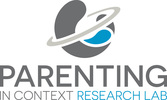GLOBAL PERSPECTIVES ON GENDER INEQUALITY, PARENTAL VIOLENCE, AND CHILD DEVELOPMENT, USING UNICEF MULTIPLE INDICATOR CLUSTER SURVEYS (MICS) DATA, AND FUNDED BY NICHD-R15 GRANT
Gender inequality perpetuates harmful norms that justify violence against women and children and is associated with higher rates of family violence.
Worldwide, parental physical abuse is a common form of family violence that children are exposed to at alarming rates. Parental engagement in physical abuse is linked to negative child outcomes including depression, anxiety, and aggression that may persist into adulthood. Globally, these continuing mental health and aggression problems may have high financial costs, with effects both on social service systems and developing economies.
Using data from over 520,000 families in 57 low- and middle-income countries (LMICs), the current project seeks to address these research gaps by examining the associations of country-level gender inequality and violent social contexts with caregivers’ use of physically abusive behavior and child social-emotional development. We will employ multilevel models using data on parental physical violence against children, family socio-economic characteristics, and children’s social-emotional development from the UNICEF Multiple Indicator Cluster Surveys (MICS) and data on country-level gender inequality and violent social contexts from the United Nations Development Programme on Human Development and the World Health Organization Global Health Observatory.
The specific aims are to 1) examine the associations of gender inequality with parental child physical abuse in LMICs, and the moderating roles of child age and household economic status in these associations, 2) examine the associations of violent social norms and crimes with parental physical abuse in LMICs, and 3) examine the associations of parental physical abuse with child social-emotional development in the context of gender inequality and violent norms and crimes in LMICs, and whether country-level normativeness of physical abuse moderates these associations.
Worldwide, parental physical abuse is a common form of family violence that children are exposed to at alarming rates. Parental engagement in physical abuse is linked to negative child outcomes including depression, anxiety, and aggression that may persist into adulthood. Globally, these continuing mental health and aggression problems may have high financial costs, with effects both on social service systems and developing economies.
Using data from over 520,000 families in 57 low- and middle-income countries (LMICs), the current project seeks to address these research gaps by examining the associations of country-level gender inequality and violent social contexts with caregivers’ use of physically abusive behavior and child social-emotional development. We will employ multilevel models using data on parental physical violence against children, family socio-economic characteristics, and children’s social-emotional development from the UNICEF Multiple Indicator Cluster Surveys (MICS) and data on country-level gender inequality and violent social contexts from the United Nations Development Programme on Human Development and the World Health Organization Global Health Observatory.
The specific aims are to 1) examine the associations of gender inequality with parental child physical abuse in LMICs, and the moderating roles of child age and household economic status in these associations, 2) examine the associations of violent social norms and crimes with parental physical abuse in LMICs, and 3) examine the associations of parental physical abuse with child social-emotional development in the context of gender inequality and violent norms and crimes in LMICs, and whether country-level normativeness of physical abuse moderates these associations.
|
PRINCIPAL INVESTIGATOR
CO-INVESTIGATORS
|
Julie Ma, PhD (University of Michigan-Flint)
Shawna J. Lee, PhD & Andrew Grogan-Kaylor, PhD (University of Michigan)
|
|
FUNDING
|
|
|
RELATED PUBLICATIONS & PRESENTATIONS
|
|


